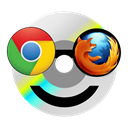Uncovering the Best Webconverger Alternatives for Your Web-Centric Needs
Webconverger, a Linux-based operating system designed by Kai Hendry, has long served as a reliable solution for users seeking a dedicated web-access environment. First released in 2007 and based on Debian, it’s a lightweight, open-source live OS that boots from various media and runs efficiently on x86 hardware, even older machines. However, as technology evolves and user needs diversify, many are exploring a Webconverger alternative to find a solution that offers more features, broader compatibility, or different philosophical approaches. This article delves into the top contenders that can provide a similar, or even enhanced, web-centric computing experience.
Top Webconverger Alternatives
Whether you're looking for enhanced features, a different open-source philosophy, or specific platform compatibility, these alternatives offer compelling reasons to consider them over or alongside Webconverger.

Google Chrome OS
Google Chrome OS is a Linux-based operating system by Google, meticulously designed for web applications. As a free operating system, it offers a robust alternative to Webconverger with features like automatic updates, Google Chrome Extensions, seamless sync with Google Drive, and even the ability to run Android Apps on Desktop, making it a powerful choice for those deeply integrated into the Google ecosystem.

CloudReady
CloudReady, built and maintained by Neverware (now part of Google), is a Freemium operating system based on Google’s open-source Chromium OS. Like Webconverger, it prioritizes web apps and cloud storage. It runs on Linux and Chrome OS platforms, offering a familiar experience with the added benefit of Google Chrome Extensions, making it a strong contender for those seeking a managed yet flexible web-centric OS.

Chromium OS
Chromium OS is the open-source project behind Chrome OS, primarily for developers. As a free and open-source Linux-based operating system, it offers a fast, simple, and secure computing experience focused on the web. For users who appreciate Webconverger's open-source nature and wish to delve deeper into the core of web-centric operating systems, Chromium OS is an excellent choice for customization and development.

Porteus
Porteus is a complete Linux operating system that excels in portability, much like Webconverger. It's free and open-source, optimized to run from various bootable media like CD, USB flash drive, or hard drive. Its lightweight nature (under 300MB) and features like Portable Linux, LiveUSB, and Small-footprint make it an ideal Webconverger alternative for users needing a highly portable and efficient OS.

JustBrowsing
JustBrowsing is a free and open-source bootable Linux "Live CD" (based on Arch Linux) designed for a simple computing experience, without altering the existing system. It's a direct competitor to Webconverger in its focus on web browsing, offering ChromeOS-like functionality and supporting web browsers based on both Chromium and Firefox. Its LiveUSB capability makes it perfect for secure, temporary browsing sessions.

Black Lab NetOS
Black Lab NetOS is a free personal Linux and Web-based operating system positioned as an alternative to Google Chrome OS and Chromium OS. Like Webconverger, its core philosophy revolves around accessing all applications from the cloud. This makes it a compelling Webconverger alternative for users who are comfortable with a purely web-based workflow and desire an operating system built around this concept.

FydeOS
FydeOS (formerly Flint OS) is a free and open-source Chrome OS fork, based on Chromium OS, with notable support for Android apps. While aimed at the Chinese market, its cloud-based and ChromeOS-like features make it a versatile Webconverger alternative. For users seeking the familiar Chrome OS experience combined with Android app compatibility, FydeOS offers an intriguing and functional solution.
Exploring these Webconverger alternatives reveals a rich landscape of operating systems tailored for web-centric use. Whether you prioritize a fully Google-integrated experience, a lightweight portable solution, or an open-source platform for development, there's an option that will perfectly align with your specific computing needs and preferences.